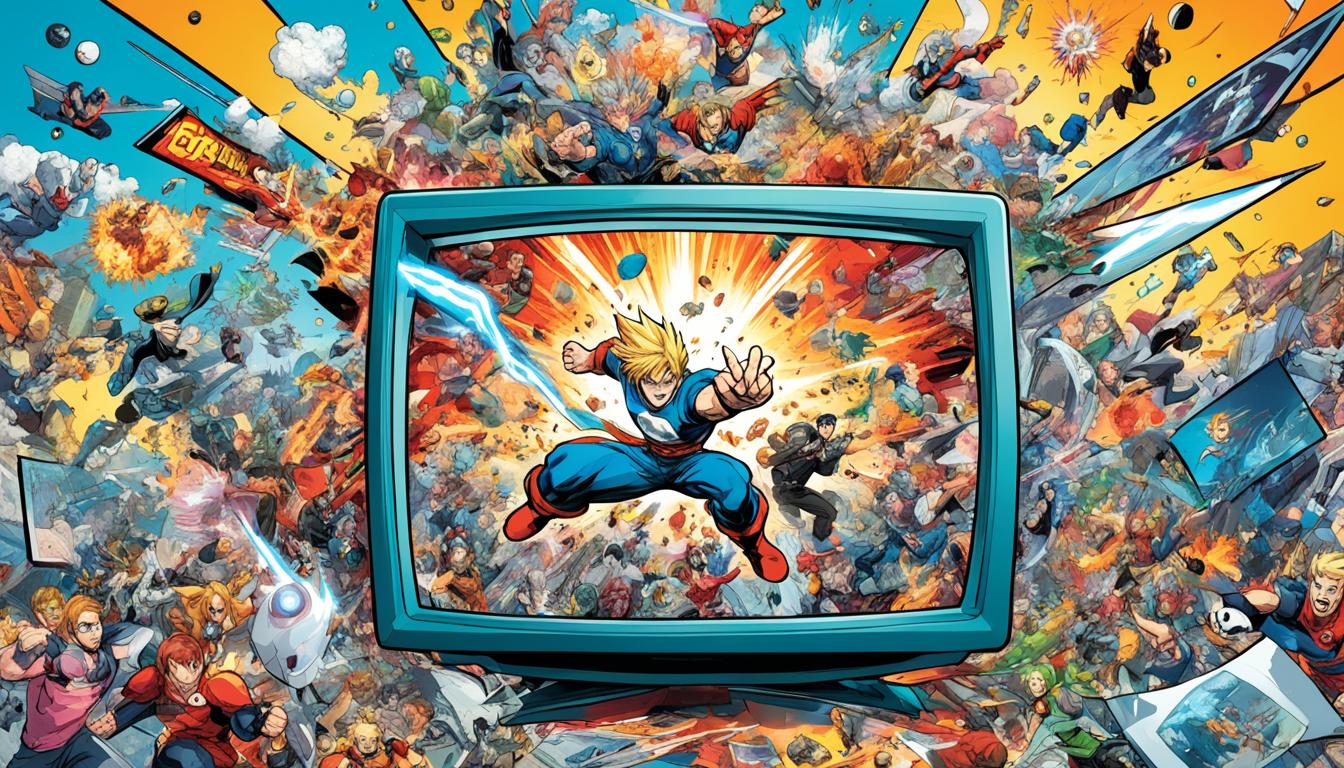Do you know that otaku culture is a big deal now? It’s about loving Japanese anime, manga, and what comes with them. This love has turned into a force that’s changing how we create things and how societies work. People all over the world have fallen for it. It’s like a bridge showing the West what Japan is like.
Otaku culture is impressive because it tells amazing stories. These stories can be about the most normal days to the craziest adventures. That’s why so many different kinds of people are into it. It really is for everyone.
Anime and manga, the heart of otaku ways, are more than just fun. They helped bring real change during Chile’s protests in 2019. Protesters would wear costumes of their beloved anime characters. This act showed strength and unity, making the calls for social fairness louder in Chile.
Key Takeaways:
- Otaku culture has evolved into a powerful force for change in creative expression and social dynamics.
- Anime and manga cover a wide range of genres, appealing to diverse audiences worldwide.
- During the Chilean protests in 2019, otaku culture became a symbol of empowerment and was embraced by protesters.
- Academic studies have highlighted the influence of anime and manga, showcasing their global reach and transcultural impact.
- Otaku culture has the potential to foster inclusivity, creativity, and social awareness.
Anime and Manga: A Global Phenomenon
Today, anime and manga are hugely loved around the world for their unique stories and beautiful art. They cross borders, inviting everyone into their world. Through creativity, they bring us together.
Anime are animated shows and manga are comic books from Japan. They bring Japan’s deep culture and history to people worldwide. This sharing helps us see and understand Japan’s unique traditions.
Anime and manga can tell all kinds of stories. From simple days to adventures in space, there’s something for everyone. This is why people from all over enjoy them.
Fans watch hours of anime each month, loving the characters and their stories. This love is felt all over the world. Anime and manga connect us globally.
By 2002, they became so popular that Japan’s cultural influence was celebrated. This was recognized by Douglas McGray as “Japan’s Gross National Cool.”Anime was a big part of this.
| Anime and Manga Industry | Japan Culture Promotion | South Korea Cultural Exports |
|---|---|---|
| Anime is a multi-billion dollar global industry, making it one of the most profitable media ecosystems in the world. | In 2013, the upper house of Japan’s parliament approved a $500 million fund for twenty years to promote Japanese culture, including anime and manga, to boost international relations. | South Korea’s cultural exports grew from $500 million in the early 2000s to $4 billion in 2011, showcasing their successful promotion of Korean popular culture. |
| Astro Boy, created by Osamu Tezuka, was published from 1952 to 1968, spanning 16 years of adventures. The manga was a commercial success and later adapted into an anime series. | Japan and South Korea have been focusing their efforts on promoting themselves in Southeast Asia, with South Korea exhibiting more success in this region. | South Korea had a cultural investment fund of $1 billion in 2014, indicating substantial investment in promoting Korean culture. |
| Japanese popular culture has gained a significant following in the U.S. over the past three decades, demonstrating the impact of anime globalization on American popular culture. | China has been promoting its culture through Confucius Institutes, indicating their efforts to enhance soft power, although lagging behind Japan and South Korea. | South Korea’s popular culture is viewed as “non-offensive,” which contributes to its success in comparison to countries like China, Russia, and the United States. |
| Japan has faced challenges due to its historical actions in East Asia during WWII, affecting its image despite the promotion of “cool Japan.” |
Anime and manga influence more than just shows and books. They affect art, music, and fashion too. This broad impact is seen in many areas of our daily lives.
The love for anime and manga is only growing. More people connect with these stories every day. They have truly become a global force in culture.
Otaku Culture: A Symbol of Empowerment
In 2019, Chile’s protests saw otaku culture become a symbol of power and unity. Protesters used anime and manga themes to highlight their issues with society and politics. They wore costumes of their beloved characters and used catchphrases from famous series.
These actions showed the protesters’ creative ways of sharing their problems. Many found the ideas of justice, fighting back, and coming together in anime very relatable. So, the use of otaku culture boosted their will to stand against what they thought was unfair.
Chileans didn’t just use anime and manga for fun; they were a strong way to speak out. The art and stories helped them tell their hopes and frustrations for a better future. Through otaku culture, they were able to bring people together with a clear common aim.
Moreover, being part of otaku culture gave protesters a sense of home and identity. It let them blend their love for anime with fighting for change. This mix empowered them to be real about their feelings and to push against what’s wrong in society.
The Intersection of Otaku Culture and Activism
The mix of otaku culture and activism brings interesting debates. Some worry about the treatment of women in anime and manga. There are themes that show women poorly, making it hard to balance being an otaku with supporting gender fairness.
Yet, others say otaku culture can break the rules of what’s expected from gender. They see it as a way to redefine what strength and power mean. This could make otaku culture more open and accepting.
There’s also the concern of how some female characters are shown in anime. They might look too young or overly focused on their looks, which could support stereotypes. But, some fans manage to enjoy these themes while promoting healthy relationships with women.
Getting deeply into otaku culture can also help with personal growth. It could make people more at ease with their sexual identity. This might lead to better self-understanding and respect.
To wrap up, otaku culture played a key role in Chile’s protests. It became a powerful story to talk about and fight for change. Yet, it’s vital to freely talk about the complex issues otaku culture brings, like gender fairness. Honest talks about these issues could make otaku culture support a more equal and empowering cultural community.
Otaku Culture: A Global Movement
Over the years, otaku culture has grown from a small group to a big community. It has fans worldwide. This culture has greatly influenced Western animation, music, fashion, and art. Many Japanese artists and global brands now work together because of otaku culture.
People from all walks of life, especially artists, designers, and musicians, have welcomed otaku culture. It’s become part of their work, showing a shared love for anime and manga. This has helped spread the appreciation of Japanese culture around the globe.
Music, especially hip-hop, has seen a big change because of otaku culture. For example, important 90s group Wu-Tang Clan has used Japanese movies in their songs. Even today, stars like Pharrell Williams work with famous Japanese figures like Hatsune Miku, keeping otaku culture alive in music.
Even the world of fashion has been touched by otaku culture. Big names like Louis Vuitton and Supreme have worked on projects inspired by anime and manga. This has brought high fashion closer to otaku fans.
Japanese artist Takashi Murakami is a great example of otaku culture’s impact on art. He’s well-known globally for mixing elements of otaku in his art. Even top brands like Louis Vuitton have been part of his projects. His style, known as “superflat”, is full of bright colors and images from anime and manga, showing how deep otaku culture goes in the art world.
Today, otaku culture is much more than just a niche interest. It’s a powerful, global force that affects entertainment, art, music, and fashion. It brings people together, no matter their background, through a shared passion for Japanese anime, manga, and related media.
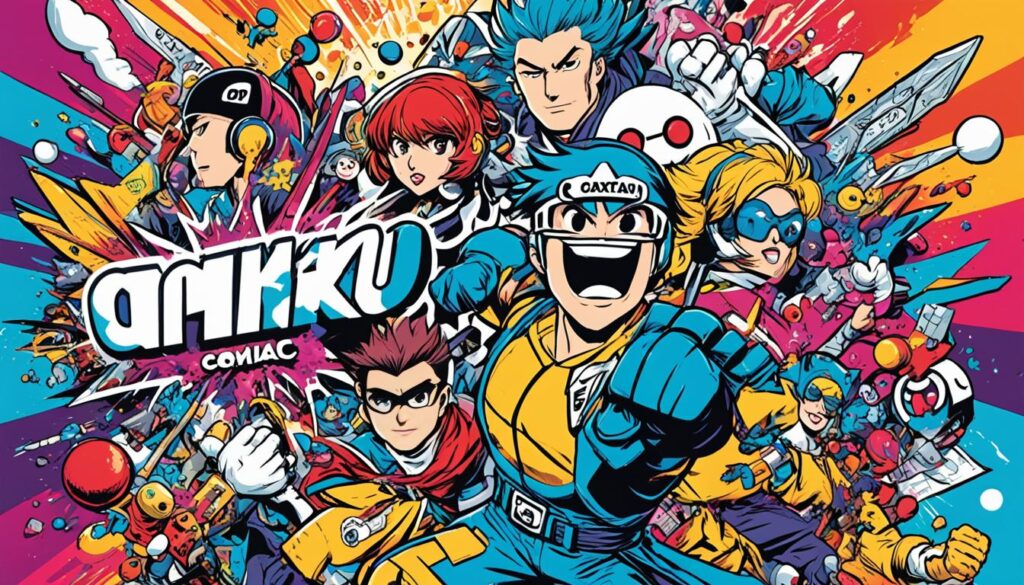
| Key Influences of Otaku Culture | Industries | Artists |
|---|---|---|
| Music | Music | Hip-hop artists |
| Fashion | Fashion | Louis Vuitton, Supreme |
| Art | Art | Takashi Murakami |
Positive Influence of Otaku Culture in Art and Design
Otaku culture brings a positive influence to art and design worldwide. It started in Japan through anime and manga. Notably, artist Takashi Murakami is a key figure. His work mixes postwar Japanese themes with otaku elements, gaining global fame. His “superflat” style uses colorful, graphic images from anime and manga.
Many other artists got inspired by otaku culture. This led to a fusion of Japanese pop culture with today’s art. For example, KAWS and Jeron Braxton blend otaku elements into their work. Such artists use anime and manga themes to create eye-catching and deep pieces.
Influence on Fashion and Design
Otaku culture goes beyond art into fashion and design. It encourages new, cool collaborations and inspires creativity. High-end brands like Louis Vuitton collaborate with famous otaku artists. This creates unique, limited-edition items that combine fashion with otaku culture.
“Otaku culture’s vibrant aesthetics and imaginative narratives have greatly enriched the art and design world, bringing forth a new wave of creative expression that embraces the influences of Japanese popular culture and captivates a global audience.”
The influence of otaku culture even impacts product design. Fans of otaku want unique collectibles and merchandise. This demand has led to the creation of a range of cool products. From figures and clothing to tech gadgets, otaku culture sparks innovation in design.
| Positive Influence of Otaku Culture in Art and Design |
|---|
| Sparked international recognition for Japanese artist Takashi Murakami |
| Incorporation of otaku elements in Murakami’s “superflat” style |
| Fusion of otaku culture and contemporary art by artists like KAWS and Jeron Braxton |
| Influence on fashion through collaborations between luxury brands and otaku artists |
| Creation of unique and innovative products inspired by otaku culture |
Otaku culture is full of vibrant aesthetics and creative stories. It transforms the art and design world. This new wave of creativity, inspired by Japanese pop culture, captures the heart of a global audience. Otaku culture’s positive impact is clear, inspiring creatives worldwide to include its spirit in their work.
Otaku Influence in Popular Culture
Otaku culture has traveled far from Japan, affecting global popular culture in big ways. It touches everything from music and fashion to various creative fields. This influence has left a big, lasting mark on trends around the world.
“The Boondocks” TV show is a great example, mixing animations that draw from both anime and Western styles. This mix highlights the unique experience of Black Americans. It shows how otaku culture can reach and connect with different people through TV.
In music, there’s a strong link between otaku culture and hip-hop. Hip-hop artists like Lupe Fiasco and Childish Gambino bring nerdy references into their music. They connect with fans by showing their love for anime, manga, and video games.
Even fashion has not escaped the otaku wave. Big names like Louis Vuitton and Supreme have joined in, creating collections that mix high fashion with anime and manga. This has not only gained the attention of new fans but has also taken otaku culture closer to the mainstream.
Through various collaborations and natural growth, otaku culture keeps changing and shaping popular culture all over the world. Its impact is clear as we see more and more creators draw from anime and manga for inspiration.
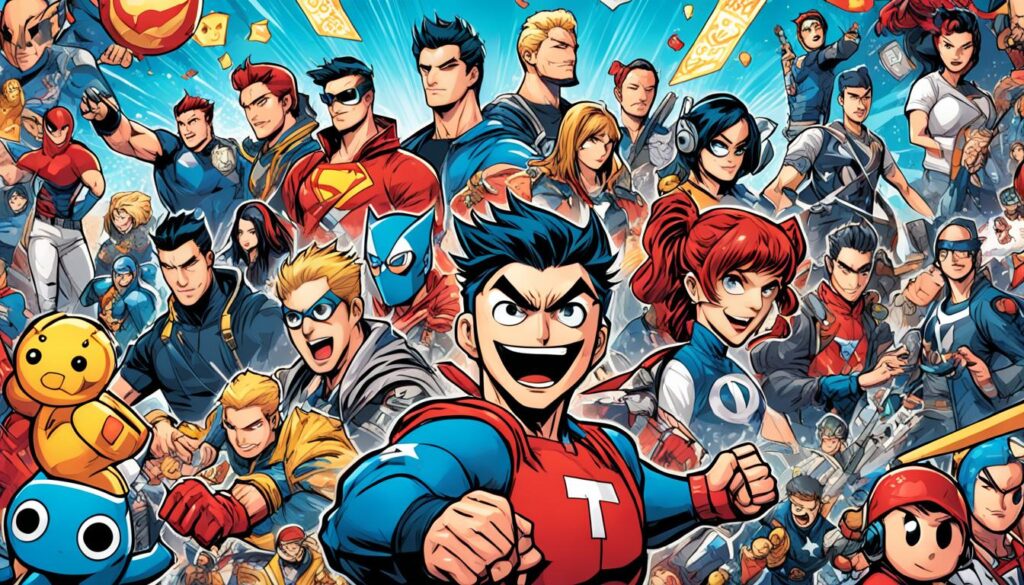
The Power of Collaboration
“The integration of otaku culture into mainstream popular culture shows the power of working together. It proves that by mixing diverse influences, we can create new and amazing things.” – Takashi Murakami
Evolution of the Term “Otaku”
The word “otaku” started in Japan in the 1980s. It was used for fans of anime, manga, and related media. This term was seen negatively at first. People who were called “otaku” were seen as too obsessed or awkward.
Back then, “otaku” was written as おたく in hiragana. It was not a friendly term for those who really loved anime and manga. But as time passed, things changed in Japan.
People worked to make otaku culture more accepted. The term was changed to オタク, now seen as more neutral. Also, spreading otaku culture was seen as a good thing.
Now, Akihabara in Tokyo is a place many tourists visit. There, you can find all things electronic and anime. The media also started showing otaku more positively. This was a big step in making otaku culture normal and even celebrated.
America sees the term “otaku” in a broader and better light. Over there, it’s a tag for anyone who really loves Japanese pop culture. This includes anime, manga, and more, without the bad image from Japan.
In the U.S., “otaku” got into the Oxford English Dictionary. This made it more official in American culture. The term shows how big otaku culture is worldwide. It’s not just in Japan or America.
The change of “otaku” shows how we view otaku culture. In Japan and the U.S., people think of otaku in different ways now. Japan went from a bad view to a better one. America sees it as a big part of its pop culture. This shows that otaku culture is important and loved around the world.
Negative Stereotypes of Otaku in Japan
Japan is slowly changing how it sees otaku, but some bad ideas still linger. People wrongly blame otaku for bad things like a drop in young people being good and worries about jobs. These wrong views started in the 1980s and 1990s. Back then, the news and TV said otaku guys were weird and scary. They even called a young killer “The Otaku Murderer,” starting an “otaku panic.” Sadly, these bad labels miss out on otaku women, focusing only on men.
These bad labels don’t see the true otaku world and the good sides of otaku culture. Stories and shows with otaku characters are slowly changing this. For instance, the anime and manga “Genshiken” made in the early 2000s showed college otaku. It talks about female otaku in a fair way. Also, shows like “Doujin Work” and “Princess Jellyfish” spotlight girl otaku, the last one being for girls mainly.
“Genshiken Second Season” then put even more women in, along with a new type of otaku called fudanshi, or guys who like BL. This show broke a lot of old views on otaku. In the 2000s and 2010s, other shows started to show male otaku in a new light, too. They showed them dealing with problems like anxiety and not fitting in. This is a more real way to see otaku in today’s world.
It’s clear not all otaku fit these bad stereotypes. While a few might be a bit shy, it’s not right to judge all otaku this way. The good parts of otaku culture, such as art and helping the economy, are great. We should not overlook these good parts because of old ideas about otaku. It’s time to see otaku for the cool and diverse culture it really is.
Positive Contributions of Otaku Culture
Otaku culture is now a strong force, making positive changes in Japan and around the world. It has shifted from a small, often frowned upon group to a widely loved global trend.
It has become a bridge for cultures to meet. Because of otaku culture, Japan is drawing more tourists and interest in its language and lifestyle. Anime and manga have made cultural exchange easy, bringing people together across the globe.
Also, otaku lovers are boosting Japan’s economy by spending on anime and manga. Their support inspires new products and ideas. Branded collaborations with otaku icons result in special, popular items.
Otaku’s influence doesn’t stop at the economy. It affects fashion, music, and art too. Big names like Louis Vuitton mix high fashion with beloved anime. Musicians like Frank Ocean include anime music in their songs. Artists like Pharrell use Japanese pop art as inspiration.
Otaku culture is a hub of creativity. Its fans support unique, high-quality work. This expectation has made artists and companies step up their game. Even ad agencies have noticed otaku’s importance, creating special ways to reach them.
In the end, otaku culture’s impact is huge and positive. It strengthens cultural ties, boosts the economy, and inspires new ideas. Its influence will continue shaping our world’s culture and creativity.
Future of Otaku Culture
The future of otaku culture looks bright. People worldwide are more interested in Japanese anime, manga, and media. This interest touches the hearts of many and shapes cultural trends around the globe.
As technology gets better, otaku culture will be more connected. Online spaces will allow fans to come together. They can enjoy and discuss their favorite anime, manga, and more, building friendships along the way.
Also, otaku influences in mainstream culture will keep growing. This means you might see more otaku themes in art, design, and music. It helps bring otaku culture closer to everyone.
Otaku culture stands out because it values diversity, teamwork, and creativity. It encourages people to break traditional rules by sharing unique stories and art. This has encouraged many to be more creative and show their individual views.
The future of otaku culture is a lively world. Here, anime, manga, and related content keep pulling people in. They inspire new generations of artists, creators, and fans.
Otaku Culture and Social Change
Otaku culture is changing society and questioning how things are done. Fans use anime, manga, and other media to share important messages and support causes. This goes beyond just fun; it inspires people to join social movements.
These fans are creative and bring new ideas. They change how we think and notice important social issues. Through anime and manga, they teach us to stand up against unfairness and inequality.
In 2019, otaku culture played a big role in the protests in Chile. Protesters wore anime costumes and used show phrases to fight for justice. These anime themes united people against unfair treatment.
“Otaku culture has the power to inspire and unite people in unexpected ways. It provides a platform for individuals to express their discontent and convey powerful messages of change. The creativity and passion of otaku enthusiasts are driving forces behind the ongoing social transformation we are witnessing.”
Otaku culture has a worldwide influence. People from all over are drawn to anime and manga. This makes otaku messages reach a broad audience, helping with awareness and action globally.
As a creative group, otaku culture is linked to change in society. Their focus on new ideas, diversity, and highlighting unheard voices challenges the way we think. It encourages us to question our world.
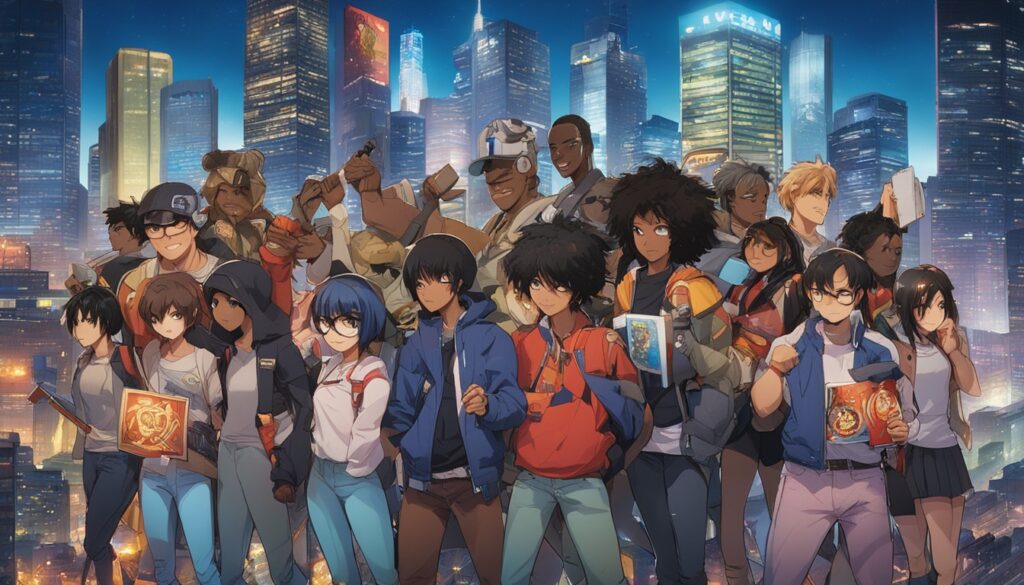
| Examples | Impact |
|---|---|
| The incorporation of otaku elements in protests | Symbol of empowerment, unity, and resistance |
| Utilizing anime and manga themes to convey messages of social justice | Inspiring collective action and advocating for change |
| Spreading awareness of social issues through cosplay and fan art | Promoting empathy and understanding |
| Creating online communities for discussion and organization | Fostering networking opportunities and mobilizing individuals |
Otaku culture’s mix of creativity and awareness is making a big impact. Fans are challenging society’s rules, fighting for fairness, and making a difference. As the movement grows, we can expect even more positive changes.
Impact of Otaku Culture on Global Community
Otaku culture has changed the world by connecting people from all walks of life. This geek sub-culture started roughly 30 years ago. Since then, it has reached across the globe, uniting fans through the internet, conventions, and social media.
People bond over their shared love for anime and manga, making friends without borders. The global otaku community is key in sharing and celebrating Japanese animation. Their love has introduced many to Japan’s diverse culture, sparking interest in its language, fashion, music, and art worldwide.
This culture thrives on teamwork. Fans worldwide join hands to plan events, make fan art, and dress up in cosplay. These activities not only celebrate their creativity but also promote Japanese culture globally.
Otaku culture is everywhere, not just in your streaming list. It influences the merging of international and Japanese art in entertainment. Its unique mark can be spotted in art, music, and fashion too.
It has also inspired global talent. Artists like Takashi Murakami and musicians such as Lupe Fiasco draw inspiration from otaku culture. They bring this unique flavor to the wider world, enriching art and music with Japanese pop and otaku style.
| Impact of Otaku Culture on Global Community | Examples |
|---|---|
| Cultural Exchange and Appreciation | Increased interest in Japanese language, fashion, music, and art |
| Collaboration and Spreading Japanese Culture | Organizing events, creating fan art, cosplay |
| Influence in Entertainment | Collaborations between international brands and Japanese artists |
| Influence in Art, Music, and Fashion | Artists like Takashi Murakami, musicians like Lupe Fiasco |
Otaku culture’s effect goes way beyond just art and fun. It forms a global community that cherishes creativity and story. This community shows how otaku culture can unite people, promote understanding, and inspire worldwide creativity.
Otaku Culture as a Catalyst for Creativity
Otaku culture is driving creativity. It inspires people in many fields. This includes artists, writers, musicians, and designers.
Its unique stories, art, and themes have a big impact. They influence how people express themselves creatively.
Many new styles and genres have come up by mixing otaku elements with other forms of art. Otaku culture is known for pushing the boundaries. It encourages artists to do the same, making their work more innovative.
One anime, Madoka Magica, is a standout from the 2010s. It combines a dark story with beautiful animation. Many artists have been inspired to use similar themes and styles.
“Your Name” is a movie that stands out. It uses photo-realistic art to deeply show the characters’ worlds. Artists are inspired by its deep, immersive storytelling.
Shirobako is a show that looks at the anime industry in a unique way. It’s loved for how it talks about anime itself. It inspires others to make stories that are aware of their own medium.
The movie “Spirited Away” by Hayao Miyazaki explores big themes. It looks at globalization and personal change. The character No-face is a symbol of some of globalization’s negative effects. Artists use these themes in their work to reflect on our changing world.
Overall, otaku culture opens doors to new creativity. It encourages artists to think differently. Creatives all over the world find inspiration in otaku’s rich and diverse culture.
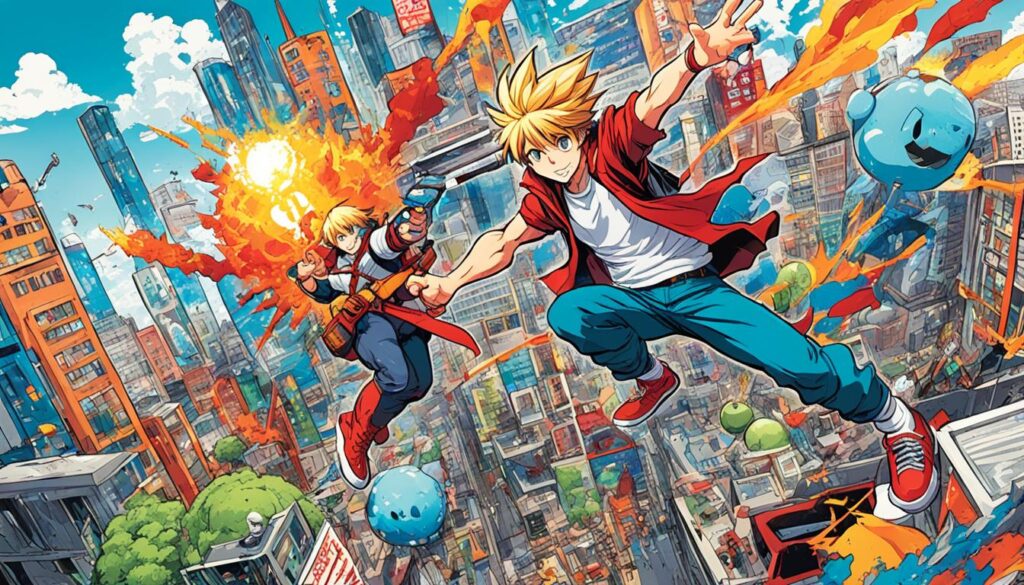
Conclusion
Otaku culture is now a driving force of change. It has moved beyond just fun to shaping how we create and interact. This culture has a big effect on popular culture, art, design, and the world community. It shows that it’s more than a small interest.
Despite facing criticism, otaku culture has brought real benefits. It has helped grow the economy and bring people together. This change and openness have offered better chances for different people to connect.
The future for otaku culture is looking bright. It continues to draw in fans from all over. This power makes it a force for new ideas and as a symbol of strength. It’s about finding creativity and support with others who share the same passion.
The growth in interest about otaku culture globally is proof it’s staying. It motivates, breaks old rules, and opens new creative ideas. With its power to unite, otaku culture is set to make a bigger mark. It brings people together and that shapes the way we see the world.
FAQ
What is otaku culture?
Otaku culture is all about loving Japanese anime, manga, and their world. People who love it find joy in a wide range of stories and themes.
What is the global reach of otaku culture?
Across the world, otaku culture draws fans with its captivating stories. It acts as a bridge, letting people outside Japan understand its culture better.
How has otaku culture been used in social movements?
In movements for change, otaku culture stands for empowerment. In Chile’s 2019 protests, it helped mobilize people with its symbols.
How has otaku culture influenced popular culture?
Otaku culture has gone far beyond just entertainment. It has greatly influenced Western animation, storytelling, and even fashion and music.
Who are some artists influenced by otaku culture?
Artists like Takashi Murakami, Jeron Braxton, and KAWS have made otaku’s mark in the art scene. They blend otaku elements into their inspiring works.
What is the evolution of the term “otaku”?
Originally from Japan, “otaku” was first seen as a negative term. Today, it is happily used to describe fans of Japanese culture in the United States.
What negative stereotypes are associated with otaku?
Some negative ideas tie otaku to social worries and crimes. Still, not everyone in the otaku community fits these bad stereotypes.
What positive contributions does otaku culture have?
Otaku culture has boosted Japan in many ways, like raising tourism and interest in the country. It has also helped bring people together from different parts of the world.
What is the future of otaku culture?
The future for otaku culture is bright, with more global love and creativity ahead. It’s set to keep influencing society and challenging creative norms.
How has otaku culture impacted the global community?
It has created a united global community, bringing together fans everywhere. This is through the internet, conventions, and other meeting points.
How has otaku culture influenced creativity?
It has fueled creativity globally, inspiring and changing art, design, music, and storytelling. Creative minds worldwide have embraced its influence.
What is the conclusion about otaku culture?
Otaku culture is a major force, enriching art, design, and popular culture globally. Despite some negative views, it continues to shape creativity and inspire.
